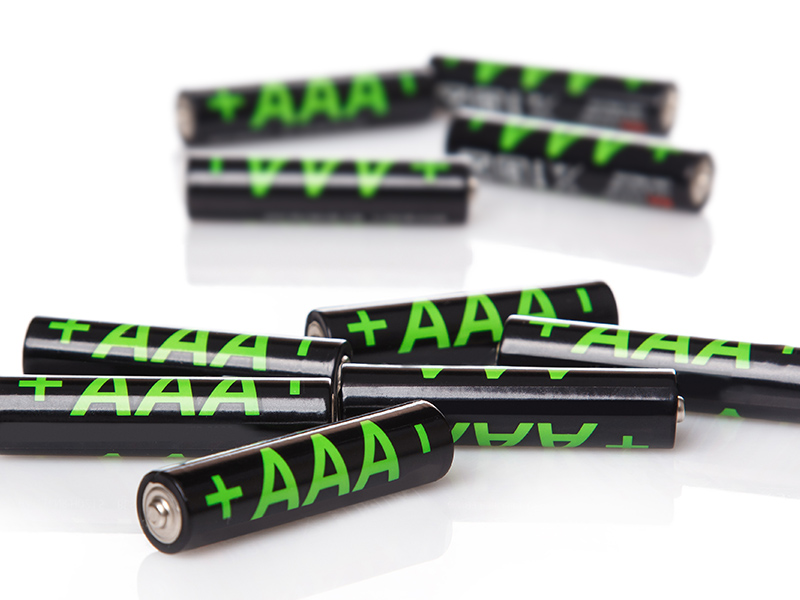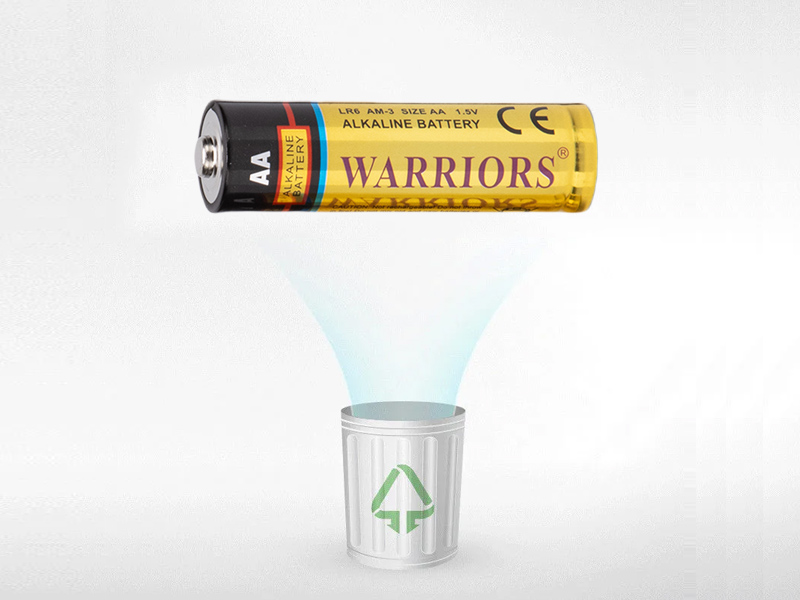English
English
In modern life, batteries power countless devices, from daily household appliances to high-tech electronic products. Among them, 1.5V batteries have become the mainstream choice due to their strong versatility and wide range of applications. This guide will introduce the types, working principles, applicable scenarios and maintenance methods of 1.5V batteries in detail to help you better choose and use batteries.
Part 1. What is a 1.5V battery?

A 1.5V battery is an electrochemical cell with a nominal voltage of 1.5 volts. Widely used in a variety of everyday electronic devices, its rated voltage is the voltage difference between the positive and negative voltages of the battery, which directly affects the normal operation of the device. Due to its performance and reliability, the 1.5V battery has become an ideal power source for portable devices.
Key Features:
What are the types of 1.5V batteries?
Alkaline batteries: Alkaline batteries are one of the most popular types of 1.5V batteries. They are known for their long life and high energy density. Their advantages are long-lasting, wide market and easy to buy, but the disadvantage is that they are not rechargeable.
Carbon batteries: Carbon batteries are another common 1.5V battery, mainly used in low-power devices. The price is cheaper than alkaline batteries, but the life is shorter and the stability is poor under high load.
Lithium batteries: Lithium batteries have added advantages over alkaline batteries and zinc-carbon batteries, with longer service life and higher energy density. The disadvantage is that the price will be higher than alkaline carbon batteries, and some models are not available in full size.
Part 2. How do 1.5V batteries work?
1.5V batteries work by generating electricity through an electrochemical reaction that occurs inside them. When the battery is connected to an electronic device, a chemical reaction occurs between the anode (negative electrode) and the cathode (positive electrode), which generates electricity.
What are the parts of a 1.5V battery?
Part 3. What are the common applications of 1.5V batteries?
Part 4. Lifespan of 1.5V Alkaline Batteries
The lifespan of 1.5V Alkaline batteries depends on several factors:
What is their average lifespan?
Alkaline batteries have a shelf life of 10 years.
| Model | Capacity | Voltage | Expiration date |
| LR20-D | 2100min | 1.5V | 10 years |
| LR14-C | 1080min | 1.5V | 10 years |
LR6-AA |
200min | 1.5V | 10 years |
| 300min | 1.5V | 10 years | |
| 330min | 1.5V | 10 years | |
| 360min | 1.5V | 10 years | |
| 420min | 1.5V | 10 years | |
LR03-AAA |
100min | 1.5V | 10 years |
| 120min | 1.5V | 10 years | |
| 140min | 1.5V | 10 years | |
| 160min | 1.5V | 10 years | |
| LR1 | 80min | 1.5V | 10 years |
| 4LR25 | 1080min | 6V | 10 years |
| 6LR61-9V | 850min | 9V | 10 years |
NiMH rechargeable batteries typically last 2 to 3 years but can be recharged hundreds of times.
Part 5. How to store 1.5V batteries?
Storage environment: Store in a cool, dry place away from direct sunlight.
Packaging protection: Keep the battery in its original packaging to prevent accidental short circuits.
Avoid contact: Avoid contact between the battery and metal objects to prevent short circuits.
Part 6. Are 1.5V alkaline batteries rechargeable?
Most 1.5V alkaline batteries are single-use dry cells, but some brands also offer rechargeable NiMH batteries and Li-ion batteries. Rechargeable NiMH and Li-ion batteries are more suitable for repeated charging due to their design and chemistry.
Part 7. What are the safety precautions when using 1.5V batteries?

When using or handling 1.5V batteries, follow these safety recommendations:
Avoid mixing different types of batteries: Mixing different brands and types of batteries may cause leakage or explosion.
Keep away from extreme environments: Do not expose batteries to extreme temperatures or moisture, which may cause damage or leakage.
Disposal of used batteries: Used batteries should be disposed of through designated collection points or recycling programs.
Our hours
Mon 11/21 - Wed 11/23: 9 AM - 8 PM
Thu 11/24: closed - Happy Thanksgiving!
Fri 11/25: 8 AM - 10 PM
Sat 11/26 - Sun 11/27: 10 AM - 9 PM
(all hours are Eastern Time)
Hi! Click one of our members below to chat on